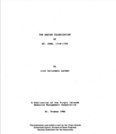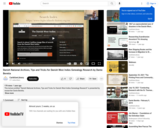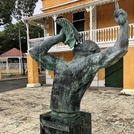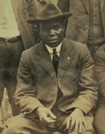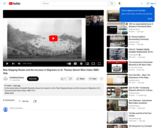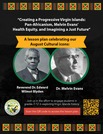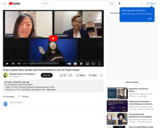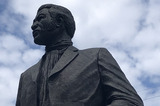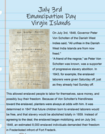In this presentation, Elizabeth Rezende shares her research on the "New Shipping Routes and the Increase in Migration to St. Thomas Danish West Indies 1880-1916".
St. Thomas is the place where every hand, shakes hands with the other. Between the 1820s and 1890, St. Thomas was the first land mass transatlantic steamships met when following the trade winds directly from the Madeira Islands.
Thus, St. Thomas became a mid-point, a place where ships had to stop to get to another place. Steamships from Europe stopped at this multi-commercial island on their journey to the Caribbean, South and Central American ports for telegraphic messages and refueling. Likewise on the homeward- voyages from the Caribbean, South and Central America, ships again stopped at St. Thomas for refueling and received orders from their home offices.
In 1871, the Hamburg American Line determined that St. Thomas would be its Atlantic headquarters for its newly organized seven routes within the Caribbean Basin.
HAL sent out regularly scheduled ships carrying cargo, passengers, and mail every two weeks, creating increased business in the harbor. To accommodate the vessels’ pressed timeline, scores of unskilled laborers managed the loading and discharging of the goods and people, facilitating the ships’ readiness for the next port of call. In the census workers’ names, places of birth, and occupations were listed. In viewing the enumeration for an entire property, it can be determined that numbers of persons originally from the same islands of birth, such as Tortola and St. Croix, lived together in crowded tenements lining the harbor.
The enumerators of the Danish West Indian censuses of 1880 and 1901 were not only vigilant in entering the occupations of the seamen but also fastidious in filling out the last question, asking where the resident was if he were off-island on the day of the enumeration. Thus, we know in many cases from the censuses where a seaman was sailing and with what company.
Other trades people, such as self-employed vendors of fruits and vegetables, ferry-boat operators, and row- boat sailors, dragging lighters of cargo, were employed by independent sources, and were in the enumeration.
Additionally, a number of European recorders of travelogues comment on their observations and experiences of these routes, noting the high volume of activity among these laborers. Joseph Froude, Robert Woolward, and Anthony Trollope’s diaries give one perspective.
Froude was especially interested in the rate of pay of these groups of workers, and these rates have been corroborated with the payroll records deposited in RG 55 of the National Archives and Records Administration.
Elizabeth Rezende is an independent researcher. She has worked for forty years in studying various groups of people who have made St. Croix and St. Thomas home. Her dissertation focused on the free colored people of Free Gut, Christiansted. She has, under the auspices of the National Park Service, rendered community studies of other areas of greater Christiansted: Water Gut, Gallows Bay, and Market Square and Free Gut of Frederiksted. Her focus of study is the occupations of the residents in these areas of towns over a span of time.


